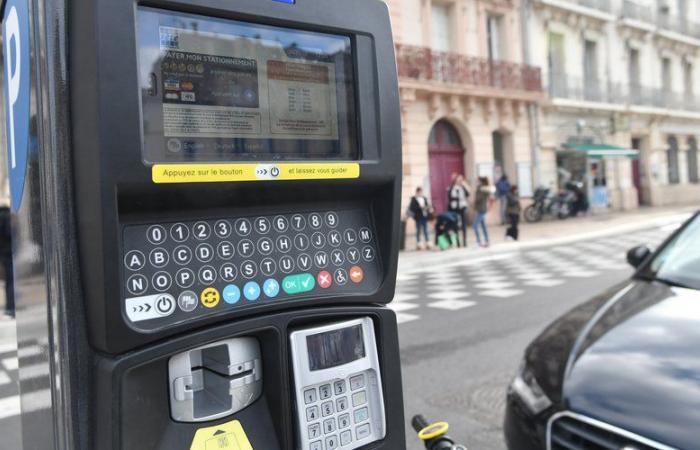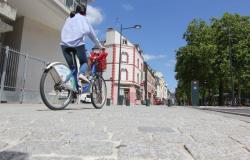After the beaches, here is paid parking which is gaining ground in the city center of Sète. This choice was unveiled this Monday, June 24 in the city council and, as expected, sparked a lively debate with the opposition on this sensitive issue in Sète. It was a question of putting to the vote a fourth amendment to the parking management agreement entrusted to the SPLBT intended to “integrate into the parking management service provision, a fleet of 52 new parking meters under management”And this is for the benefit of the city’s accounts, argued François Escarguel.
“Beneficial to the city”
According to the figures presented by the elected finance official, over the duration of the public service delegation (25 years), the community “will have received a cumulative fee of €5,640,694 paid to it by the SPLBT as well as €46 million in on-street parking revenue. These figures demonstrate, as the regional court of auditors highlighted in its October 2021 report, that the choice of taking over parking management is profitable for the city of Sète”.
François Escarguel also specified that “the calculation of the remuneration for the provision of on-street parking management services” would thus be modified from July 1, 2024. Indeed, these new parking meters correspond first and foremost to those which will come into operation from this summer (until September 30) at the beaches, in particular that of La Baleine. But not only.
Extended green zone
Questioned by the councilor and re-elected RN deputy, Aurélien Lopez-Liguori, François Escarguel indicated that the new paying perimeter concerned the beaches but also the Victor-Hugo block, once the work on the avenue is completed in September as well as the Quai d’Orient. The “green zone” pricing could also be extended in the fall to other streets that are still free (moreover, around forty parking spaces on the Quai Aspiran Herber will be removed, the Region recovering the space for fishing activity).
What are the rates in the green or orange zone?
To park on the surface in the city center of Sète, it is better to know the zoning and their color. For example, the areas closest to the Canal Royal, rue Euzet, quai Maréchal de Lattre de Tassigny or avenue Victor-Hugo are in the orange zone (short term). These axes where you can only stay for 2 hours maximum (0.80€ for half an hour and 10€ for 2 hours 15, no subscription is possible). For the so-called long-term zone (green), it currently includes 1340 spaces. Mainly on the Victor-Hugo block, it will cost you 0.60€ for 30 minutes or 4€ for 8 hours. Residents can benefit from a subscription: 18€ per month. Non-residents pay a flat rate of 42€ per month.
“You are making a mistake with this strategy of paying for everything,” retorted Aurélien Lopez-Liguori. “Free parking creates a virtuous circle, with more people in stores and more turnover… It is a long-term vision.” […]Here, the people of Sète do their shopping in the city centre and not on the outskirts. […] You will succeed in making the people of Sète leave for Balaruc, Agde, Béziers or Montpellier.”
“Suction Cup Cars”
“We see further than the end of our noses,” replied François Escarguel, before justifying this decision. “Everything we do in terms of parking is desired and chosen. But either we accept total congestion, or we apply attractive rates and allow a turnover to avoid cars that are stuck. This solution allows the people of Sète to park, but also people from outside to park. The revenue then goes to the City and allows for development, and why not then consider free transport.”
For his return to the municipal council, Sébastien Denaja (PS) did not fail to criticize the majority’s choice of François Commneinhes, whom he described as ““anti-poor”. “In addition, very often, the current housing stock does not offer the possibility for the people of Sète to park in a private car park. You say “You, the prole, you will park far away. And your girlfriend, she will pay for the parking. All night if necessary.” […] But the symbol of your policy is paid parking at the beach. The beach is the heritage of those who don’t have one. It’s the garden of those who don’t have a garden. And you make them pay for the beach! It’s not expensive, €10? But it’s the symbol that’s the problem! In Sète, the beach was our common space of freedom.” The question of parking and its evolution have not finished shaking up the world.






